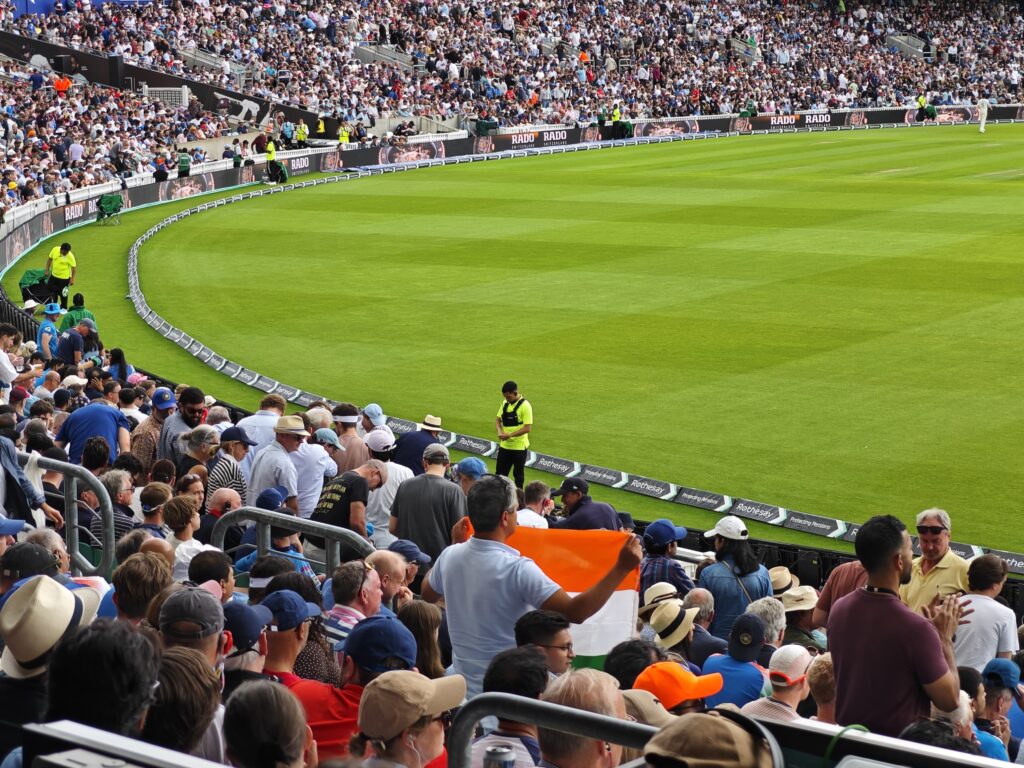
Gargi Raut in London
It was a strange kind of tension that took over The Oval on the final morning, not just on the field, but off it, in the press box, where everyone was restrained and stoic, choosing to not participate in the emotions that usually take over on the field. At the beginning of the day, it was clear that whatever we witnessed would be history. Even if it was a loss, India wouldn’t go down without a fight, the stakes monumental, and yet what many of us in the media enclosure were feeling wasn’t professionalism or distance. It was helplessness, and superstition was the only way we could contribute to the cause.
As the final day began, 35 runs separated England from one of their greatest chases in Test history, and India from a redemption arc that had taken 50 days to write. But for the press box, usually a quiet, far more objective space, this wasn’t just another morning at work.
Everyone was stressfully hovering around, pacing back and forth in the overflow section. Travelling media is just as part of a team even if they are objective in their views. The Oval’s press box has a spill-over area sandwiched between the main section and the regular stands, and it’s there, in that no-man’s land, that something surreal took place.
The wall between press and crowd blurred. We could feel the hum of anxiety rising from the stands, while the English fans were ever hopeful, the Indian fans did not want to give up, and soon we were too feeding off the energy. Not many sat in their assigned seats. It was impossible to. The main press box doesn’t offer the clearest view anyway, and on the final day, that mattered. Everyone wanted to see, to feel, to be a part of whatever was about to happen.
The moment the first wicket fell, things got tribal. Without saying a word, journalists marked their “lucky” spots. Nobody moved. One wrong step might shift the balance. At one point, a reporter who had been standing outside had stepped away to go inside, just as Mohammed Siraj steamed in. The delivery was soon up in the sky and Akash Deep, under it, had misjudged the flight. While he dived for it, it ended up over the boundary line.

We all had our heads in our hands. And immediately, all heads turned: “Where is he? Where did he go?” When the journalist returned, he got an earful. No one truly believed he had anything to do with it and yet, in that moment, we needed to believe in something. And then it happened.
Siraj, tired, relentless, found the perfect delivery. The heartbeat of the team delivered a yorker that needed a replay to be believed. And then another. Prasidh Krishna joined in. And with each wicket, the volume in the press box grew. Laptops, chargers were forgotten. While some stress ate their snacks, many wondered if it was allowed to smoke inside the stadium with the stress levels reaching the roof.
And when the last English wicket fell, the cheer erupted, not just from the crowd but also from the journalists. People who have written through World Cup wins and heartbreaks. Some were standing. Some were silent. Some were in tears.
Most of us are told early on in this job to never get emotionally involved. To stay neutral. To report the game and not feel it. But sometimes, just sometimes, a morning like this is worth breaking the rules.
Those 57 minutes were more than just sport. It was a culmination of two months of relentless hard work. Those 57 minutes had cinema, theatre, redemption. Everything.
And when it was over, no one asked for silence. No one needed a script. Because we had all just witnessed something unforgettable.
For More Exciting Articles: Follow RevSportz




